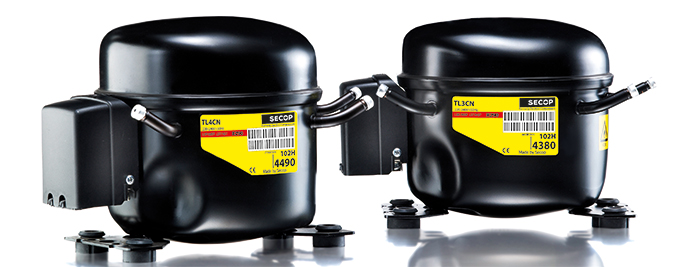The advantages and disadvantages of hermetically sealed, open, or semi- hermetic gas compressors
What is a gas compressor?
First of all, a gas compressor is a mechanical device that increases the pressure of a gas by reducing its volume. By changing the state of the gas, the gas also changes its temperature. By routing the gas through a condenser the gas can be utilized to function as a refrigerant in a refrigeration compressor. Hence, these gas compressors are main parts of a refrigeration compressor and substantial for our refrigerator at home. These refrigeration compressors and the motor driving the refrigeration compressor can be located differently depending on to the location of the compressor and motor driving the refrigeration compressor.
What does hermetic mean?
The industry name for a hermetic is hermetically sealed compressor, while a semi-hermetic is commonly called a semi-hermetic compressor. In hermetic compressors and most semi-hermetic compressors, the compressor and motor driving the compressor are integrated, and operate within the pressurized gas envelope of the system. The motor is designed to operate in, and be cooled by, the refrigerant gas being compressed. The difference between the hermetic compressor and semi-hermetic, is that the hermetic uses a one-piece welded steel casing that cannot be opened for repair; if the hermetic compressor fails it is simply replaced with an entire new unit. A semi-hermetic compressor uses a large cast metal shell with gasketed covers that can be opened to replace motor and pump components.
What are the advantages and disadvantages of a hermetic and other systems?
The primary advantage of a hermetic compressor and semi-hermetic is that there is no route for the gas to leak out of the system. Open compressors rely on either natural leather or synthetic rubber seals to retain the internal pressure, and these seals require a lubricant such as oil to retain their sealing properties.
An open pressurized system such as an automobile air conditioner can leak its operating gases, if it is not operated frequently enough. Open systems rely on lubricant in the system to splash on pump components and seals. If it is not operated frequently enough, the lubricant on the seals slowly evaporates, and then the seals begin to leak until the system is no longer functional and must be recharged. By comparison, a hermetic compressor can sit unused for years, and can usually be started up again at any time without requiring maintenance or experiencing any loss of system pressure.
The disadvantage of hermetic compressors is that the motor drive cannot be repaired or maintained, and the entire compressor must be removed if a motor fails. A further disadvantage is that burnt out windings can contaminate whole systems requiring the system to be entirely pumped down and the gas replaced. Typically hermetic compressors are used in low-cost factory-assembled consumer goods where the cost of repair is high compared to the value of the device, and it would be more economical to just purchase a new device.
An advantage of open compressors is that they can be driven by non-electric power sources, such as an internal combustion engine or turbine. However, open compressors that drive refrigeration systems are generally not totally maintenance free throughout the life of the system, since some gas leakage will occur over time.
for more information visit: www.secop.com

